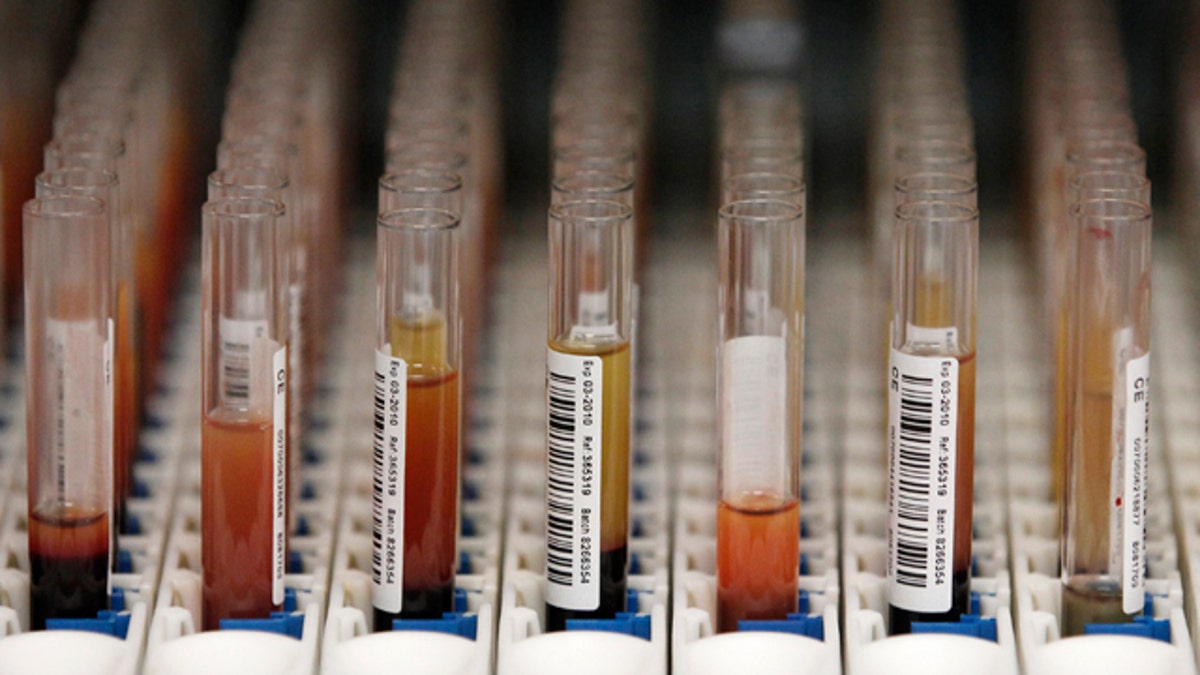
People with type AB blood may have a higher risk of heart disease compared with those whose blood type is O, according to a new study.
Researchers reviewed two studies that tracked nearly 90,000 people for more than 20 years and found that coronary heart disease risk varied with participants' blood types. People with type O blood had the lowest incidence of coronary heart disease, and compared with them, those with type AB blood were 23 percent more likely to have heart disease, while those with type B blood were 11 percent more likely, and people with type A were 5 percent more likely.
“While people cannot change their blood type, our findings may help physicians better understand who is at risk for developing heart disease,” said study author Dr. Lu Qi, assistant professor of nutrition at the Harvard School of Public Health in Boston.
The researchers considered two Harvard studies, one that tracked 62,000 women over 26 years, and one that tracked 27,400 men over 24 years. In total, more than 2,500 people were diagnosed with heart disease.
The association with blood type held even after the researchers took into account variables that affect people's risk of heart disease, such as cholesterol levels, diabetes and hypertension.
The results are "totally surprising," said Dr. Richard Stein, a cardiologist and spokesperson for the American Heart Association. While other smaller studies have suggested such a correlation, this is the first large-scale study to support the connection, he noted.
Stein said that while further research is needed, blood type could be added to the list of factors that are considered when a doctor assesses a patient for risk of heart disease, particularly because blood tests to determine it are inexpensive and have no side effects.
In order to reduce heart disease risk, people should exercise, eat right and keep their weight and cholesterol in check, Stein said.
Knowing that one's blood type puts them at higher risk may increase people's motivation to "take care of themselves and stop their bad habits," Qi said.
The researchers found a correlation between blood type and heart disease risk, not a cause-and-effect link. Other research has suggested mechanisms that may explain the link, such as a link between type A blood and one type of cholesterol, and a link between type AB blood and heightened inflammation.
But these links were found in very small studies, Stein said, so explaining the correlation requires further research, he said.
In the United States, 45 percent of people have type O blood, making it the most common blood type. Only 4 percent of the U.S. population has type AB blood, while about 40 percent has type A and about 11 percent has type B.
The paper is published Aug. 14 in the journal Arteriosclerosis, Thrombosis and Vascular Biology.
- Beyond Vegetables and Exercise: 5 Surprising Ways to Be Heart Healthy
- 10 New Ways to Eat Well
- 10 Celebrities with Chronic Illnesses
Copyright 2012 MyHealthNewsDaily, a TechMediaNetwork company. All rights reserved. This material may not be published, broadcast, rewritten or redistributed.







































